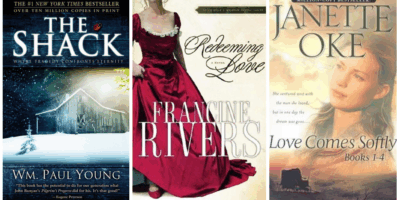Top 10 Police Procedural Novels Every Crime Fiction Fan Must Read
Introduction
Police procedurals sit at the sweet spot where character-driven fiction meets the methodical grind of real-world detective work. The genre invites readers to shadow investigators as they canvas crime scenes, chase leads, wrangle bureaucracy, and wrestle with the personal toll of seeing humanity at its worst. While thrillers often rely on pulse-pounding twists, the best police procedural novels add an extra layer of authenticity: chain-of-evidence protocols, inter-departmental rivalries, forensic details, and courtroom fallout all shape the story’s momentum. In the hands of a skilled writer, those nuts-and-bolts moments feel every bit as gripping as a car chase. The ten titles below span continents, decades, and investigative styles—from gritty American city streets to icy Scandinavian landscapes—yet each offers a master class in how meticulous police work can drive high-stakes drama. Whether you’re new to the genre or a seasoned armchair detective looking to upgrade your reading list, these novels will deepen your respect for the craft of detection while keeping you up past midnight turning pages.
1. Cop Hater by Ed McBain (1956)

Why You Should Read It?
This inaugural entry in McBain’s legendary 87th Precinct series laid the blueprint for modern police procedurals. Instead of focusing on a single heroic detective, McBain spotlights an entire squad, illuminating the camaraderie, gallows humor, and occasional friction that bloom inside a precinct house. His fictional city may resemble New York, but it’s the lived-in detail—radio codes, beat cops’ gossip, and the grind of door-to-door questioning—that makes the story immersive. McBain also broke new ground by weaving real-world social issues into the narrative, treating the metropolis as a living organism whose every artery can bleed. Reading Cop Hater is like opening a time capsule of mid-century policing, yet the procedural bones remain so sturdy that today’s crime writers still trace their outlines back to this novel.
Key Highlights
- Ground-breaking ensemble cast that feels like a true squad
- Rapid-fire dialogue capturing 1950s cop vernacular
- Realistic depiction of investigative drudgery alongside sudden violence
- Kicked off a 55-book series that shaped the entire genre
2. The Black Echo by Michael Connelly (1992)

Why You Should Read It?
Introducing LAPD Detective Hieronymus “Harry” Bosch, Connelly’s Edgar-winning debut fuses procedural precision with noir atmosphere. Bosch is a Vietnam veteran still haunted by tunnel warfare, and Connelly cleverly mirrors that trauma by sending him into the storm drains beneath Los Angeles to chase bank robbers. The result is both a meticulous police investigation and a character study of a man who distrusts authority yet clings to the badge as a moral compass. Connelly’s background as a crime reporter lets him nail forensic details and departmental politics without slowing the pace; courtroom subpoenas land with the same impact as a gunfight. If you crave a series that balances hard-boiled edge with authentic investigative steps, The Black Echo is your doorway.
Key Highlights
- Iconic anti-hero whose war scars mirror LA’s underbelly
- Vivid sense of place, from Hollywood Hills to drainage tunnels
- Realistic chain-of-evidence work supported by forensic accuracy
- Launches a long-running series that rarely drops the procedural ball
3. In the Woods by Tana French (2007)

Why You Should Read It?
French’s Dublin Murder Squad debut intertwines a baffling child homicide with its lead detective’s buried trauma—he was the lone survivor of an unsolved disappearance in the same woods decades earlier. The case’s psychological resonance elevates the procedural stakes: every fingerprint lift or witness interview threatens to crack Detective Rob Ryan’s fragile façade. French layers atmospheric prose over painstaking police work, illustrating how memory, media pressure, and inter-unit politics can distort an investigation. Her commitment to ambiguity—both moral and evidentiary—gives the novel a lingering ache that differentiates it from tidier whodunits. For readers who like their procedurals emotionally raw as well as technically sound, this is essential.
Key Highlights
- Dual mysteries that echo across decades
- Rich interior monologue that exposes the toll of police work
- Authentic depiction of Garda Síochána protocols
- Refuses easy answers, leaving ethical gray zones intact
4. Still Life by Louise Penny (2005)

Why You Should Read It?
Set in the fictional Québec village of Three Pines, Penny’s debut featuring Chief Inspector Armand Gamache proves that small-town tranquility can hide labyrinthine motives. Gamache’s investigative style—patient, courteous, and deeply intuitive—offers a refreshing contrast to the genre’s usual hard-nosed protagonists. Yet Penny doesn’t skimp on procedure: readers follow autopsy results, ballistics checks, and strategic interrogations that build a mosaic of evidence. The novel also explores bilingual law-enforcement challenges unique to Québec, adding cultural texture. Pick up Still Life if you enjoy cerebral detectives, a strong sense of place, and a story that balances cozy charm with incisive police work.
Key Highlights
- Gentleman-sleuth meets rigorous investigative method
- Evocative village setting that becomes a character itself
- Insight into Québec’s Sureté du Québec hierarchy
- Launches a beloved series blending warmth with meticulous detection
5. Black and Blue by Ian Rankin (1997)

Why You Should Read It?
Often cited as the pinnacle of the Inspector Rebus saga, Black and Blue weaves four murder cases—including a fictional take on Scotland’s infamous Bible John killings—into one sprawling narrative. Rankin excels at showing how media scrutiny, political pressure, and departmental turf wars complicate the detective’s already grim task. Rebus’s maverick streak collides with meticulous police procedure, revealing both the strengths and weaknesses of a lone-wolf approach. The novel doubles as a social portrait of 1990s Edinburgh, tackling oil-industry corruption and sectarian divides. Readers who relish complex plotting anchored by street-level authenticity will find this entry impossible to put down.
Key Highlights
- Multiple converging cases showcasing investigative complexity
- Gritty Edinburgh backdrop steeped in historical and social detail
- Tense exploration of accountability within the force
- Awarded the CWA Gold Dagger for its masterful craft
6. The Snowman by Jo Nesbø (2007; English 2010)

Why You Should Read It?
Detective Harry Hole’s Oslo is a frost-bitten labyrinth where a serial killer builds snowmen outside victims’ homes. Nesbø fuses Scandinavian bleakness with pulse-quickening set pieces, yet the procedural core remains firm: geographic profiling, forensic pathology, and multi-agency coordination drive the chase. Harry’s alcoholism and self-destructive impulses threaten to derail the inquiry, offering a stark reminder that detectives’ personal demons can be as dangerous as any perpetrator. If you’re drawn to wintry atmospherics, morally ambiguous heroes, and painstaking evidence gathering, The Snowman delivers an ice-cold masterclass.
Key Highlights
- Chilling seasonal motif that doubles as the killer’s signature
- Detailed look at Norwegian police hierarchy and forensics
- High-stakes cat-and-mouse tension without sacrificing realism
- Adapted into film, though the book remains the definitive experience
7. Gallows View by Peter Robinson (1987)

Why You Should Read It?
The first Inspector Alan Banks novel introduces readers to the Yorkshire Dales, where seemingly petty crimes spiral into darker territory. Robinson balances pastoral scenery with methodical police grind—stakeouts, neighborhood canvasses, and forensic lab reports populate the narrative. Banks’s move from London to a quieter district allows Robinson to contrast big-city procedures with rural resource limitations, illustrating how geography shapes policing. The novel also deftly handles social issues such as voyeurism, sexism, and vigilantism. For readers keen on series that grow richer over time, Gallows View is the gateway to three decades of top-tier procedural storytelling.
Key Highlights
- Rural policing challenges explored alongside urban techniques
- Nuanced protagonist who evolves over subsequent books
- Thought-provoking subplots on community fear and moral panic
- Strong supporting cast that feels authentically local
8. A Mind to Murder by P. D. James (1963)

Why You Should Read It?
Commander Adam Dalgliesh faces a locked-institution mystery when an administrator at a London psychiatric clinic is slain. James, known for literary prose and intricate plotting, tempers elegance with scrupulous procedure: suspect interviews unfold with legal precision, forensic findings guide deductions, and hierarchical tensions within the Metropolitan Police ripple beneath the surface. Dalgliesh’s poet’s soul lends introspection without sidestepping the nitty-gritty of evidence gathering. If you crave classic British whodunits elevated by rigorous investigative realism, this entry in James’s celebrated series is indispensable.
Key Highlights
- Locked-door puzzle blended with modern police science
- Literary style that never undermines procedural accuracy
- Insightful commentary on mental-health institutions of the era
- Establishes Dalgliesh as one of crime fiction’s most rounded detectives
9. The Dry by Jane Harper (2016)

Why You Should Read It?
Federal Agent Aaron Falk returns to his drought-stricken Australian hometown to probe a murder-suicide that locals insist was open-and-shut. Harper masterfully shows how small-town gossip, environmental stress, and long-buried secrets can warp an investigation. Each piece of evidence—bank statements, ballistics, rainfall records—is sifted meticulously, illustrating the procedural challenges of policing where everyone knows (or thinks they know) everyone else. Harper’s stark prose mirrors the parched landscape, and the interplay between federal and local authorities adds bureaucratic tension. The novel’s blend of atmospheric suspense and procedural rigor makes it a standout for readers seeking fresh settings.
Key Highlights
- Vivid depiction of rural Australia under climate pressure
- Inter-agency dynamics between federal and local police
- Layered mystery tying past tragedy to present crimes
- Winner of multiple awards, including the CWA Gold Dagger
10. The Frozen Dead by Bernard Minier (2011; English 2014)

Why You Should Read It?
Set in the French Pyrenees, Minier’s debut follows Commandant Martin Servaz as he investigates a decapitated horse—and soon, human corpses—near a high-security asylum. The alpine isolation magnifies every suspenseful beat, yet the procedure remains grounded: DNA comparisons, psychological profiling, and jurisdictional disputes build credibility. Minier also probes philosophical questions about evil and madness, giving the thriller heft beyond its grisly set pieces. The novel’s sense of place—icy ravines, fog-choked valleys—will enthrall readers who like their police work served with a side of atmospheric menace.
Key Highlights
- Unique premise intertwining animal and human murders
- Deep dive into French judicial and psychiatric systems
- Snowbound setting that heightens isolation and dread
- Launched a series known for psychological complexity
Conclusion
From Ed McBain’s squad-room reportage to Jane Harper’s sun-scorched rural suspense, police procedurals prove remarkably adaptable—each culture, era, and detective brings new facets to the eternal puzzle of crime and justice. The novels listed here balance painstaking investigation with compelling human stakes, reminding us that behind every case file stands a fallible officer striving to impose order on chaos. Add a few of these titles to your reading rotation and you’ll gain not only nail-biting entertainment but also a deeper appreciation of real-world law enforcement’s triumphs and tribulations. Happy sleuthing!
-

Christian novels offer more than just engaging storytelling—they dive deep into the human experience, exploring themes of faith, grace, redemption, and the enduring love of God. Whether you’re looking for spiritual encouragement, a thought-provoking narrative, or a captivating journey of transformation, the best Christian fiction can leave a lasting impact on your heart and mind. Here’s a roundup of some of the most beloved…
-

Lesbian romance novels have evolved tremendously over the years, providing readers with rich, diverse, and deeply emotional stories. From historical classics to modern-day love stories, these books capture the beauty of love and self-discovery. If you’re looking for a heartfelt read that showcases love between women, here are 10 highly recommended lesbian romance novels that offer unique perspectives, unforgettable characters, and passionate storytelling. 1.…
-

Introduction Jodi Picoult has earned a devoted global readership by coupling big‑hearted characters with thorny moral puzzles that refuse easy answers. Across more than thirty contemporary novels translated into over forty languages—and adapted for film, television, stage, and even opera—she proves that a commercial page‑turner can still probe society’s deepest fault lines. Whether you are brand‑new to her work or hunting for your next book‑club…
-

In 2024, the literary world was graced with numerous compelling novels that captivated readers and critics alike. Based on authoritative reviews and media recommendations, here are 10 standout American novels from that year: 1. All Fours by Miranda July Why Read It? A revelation of midlife reinvention, All Fours is Miranda July at her most audacious and tender. When a woman impulsively abandons…

0 Comments